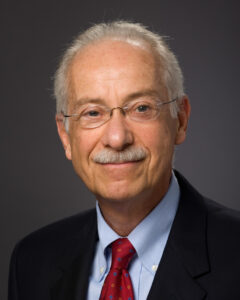
Sheldon Cooper, MD
Sheldon Mark Cooper, MD, MACR, professor of medicine, and a colleague and mentor throughout my career at the University of Vermont, Burlington, passed away June 6, after a long illness.
Dr. Cooper was born in The Bronx, New York, in 1942, earning his medical degree from New York University School of Medicine in 1967. He completed his internship and residency at Kings County Hospital Center, Brooklyn, N.Y., and Los Angeles County USC Medical Center, California, and completed rheumatology fellowship at New York University Medical Center. He joined the faculty at USC as an associate professor of medicine before moving to Vermont in 1982, where he became professor of medicine and established himself as an outstanding clinician, educator and researcher in the field of rheumatology.
During the next 35 years Dr. Cooper founded and developed the Division of Rheumatology and Clinical Immunology and the fellowship training program at the University of Vermont, serving as director of both. He served on numerous university and Department of Medicine committees and chaired the university’s Committee on Research. He served as chair of the Board of Trustees for the New England chapter of the Arthritis Foundation and on the medical advisory board for the Vermont chapter of the Lupus Foundation of America. He mentored and taught multitudes of medical students, residents, rheumatology fellows, research and clinical nursing staff, and colleagues.
Dr. Cooper made several advances in the field of inflammatory arthritis, studying the murine model of collagen-induced arthritis. Among these contributions was the demonstration of the key role of CD4 T cells. His academic achievements include authorship of nearly 70 articles in peer-reviewed publications, service on editorial boards, and presentations at regional and national meetings. He received the President’s Award and the Ariston Award from the Vermont chapter of the Lupus Foundation of America, the John H. Bland Award from the Northern New England chapter of the Arthritis Foundation and was named an ACR Master.
Shel had a wonderful sense of humor. His patients were devoted to him, not only because he cared deeply about providing the best care, but also because he cared about getting to know them as human beings. He also cared about his colleagues and never asked us to do something he was not willing to do himself.
I have many fond personal memories of Shel. I met Shel for the first time when he picked me up at the airport to interview for a faculty position. He took me for a drive through the gorgeous Vermont landscape, and I fell in love with Vermont because of that, despite the fact that it was mud season.
He also invited me to play tennis with him and some friends, and although I was a terrible player, he was very forgiving while returning the wild balls I sent his way. Because of this experience, tennis became a cherished weekend pastime. I did not join him for his regular poker games but understand he was just as good at poker as he was at tennis.



